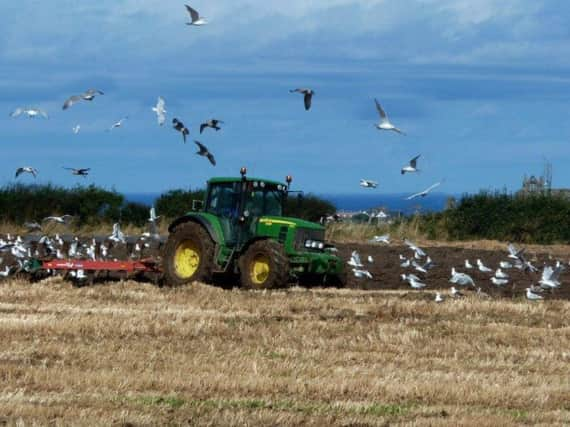'Farmers play huge part in design of tests for new support payment scheme', Yorkshire industry officials warn
This article contains affiliate links. We may earn a small commission on items purchased through this article, but that does not affect our editorial judgement.


The warning from Yorkshire farming officials comes as the Department for Environment, Food and Rural Affairs (Defra) said that just two of 46 imminent tests and trials to experiment with how farmers will be rewarded, as soon as 2021, will be led by farmers.
Advertisement
Hide AdAdvertisement
Hide AdFarmers are helping to design the tests and trials but the vast majority of early proposals are led by other organisations.
North Yorkshire farmer Richard Bramley, a member of the environment forum at the National Farmers’ Union, said: “Having another organisation co-ordinating a test or trial does make sense, but the farmer’s input, experience and practical knowledge is the key.
“Without this input being considered paramount when it comes to delivery and reward, it would be concerning.”
Advertisement
Hide AdAdvertisement
Hide AdThe final funding model - an Environmental Land Management Scheme - is expected to be widely adopted in 2028 once current EU-style support payments based on farm size have been completely phased out.
It has to be “fit for purpose”, said James Copeland, the NFU’s regional environment and land use adviser, because the scheme will be of “fundamental” importance to farm businesses.
Many farms are reliant on support payments for their survival.
Mr Copeland cautioned: “While initial trials include farmers, very few are led by farmers in the first phase. There is the potential for missed opportunities.”
Advertisement
Hide AdAdvertisement
Hide AdDefra said it had received more than 100 proposals to test and trials the new Environmental Land Management Scheme, which is being designed to reward the delivery of so-called public goods.
There is concern among farmers that there is still no definitive guided on what land management practices will be rewarded and by how much.
So far, Defra has listed the delivery of cleaner air and water, good soil health and measures that mitigate climate breakdown among the measures farmers will be rewarded for, but as recently as June, its approach to introducing a new regime of financially supporting farmers was criticised by the National Audit Office.
In a report, the watchdog warned of the risk of damage to farming families, the environment and the nation’s ability to feed itself was at risk of “unintended consequences”, with farmers given little time to prepare for an initial three-year pilot of the new scheme.
Advertisement
Hide AdAdvertisement
Hide AdHowever, Defra has made “welcome” progress since then, according to the Country Land and Business Association (CLA).
Its northern director Dorothy Fairburn said farmers must be engaged in the design of the new payments model, though she said she understood why other bodies were largely leading the forthcoming tests and trials.
“Farmers are best placed as frontline custodians of our countryside, so their engagement is key in shaping the detail of how environmental land management schemes should be defined in future,” she said.
“It is for practical reasons that just two of the projects are farmer-led as the vast majority of these proposals do involve farmers, albeit being led by other organisations, including the CLA.”
Advertisement
Hide AdAdvertisement
Hide AdMs Fairburn said Defra can build confidence about the new scheme by working closely with farmers, adding: “Farmers and land owners need to be reassured that there is certainty that Defra has the planning, resource and strategic oversight needed to manage the programme. The best way to do that is to engage the agricultural sector.”